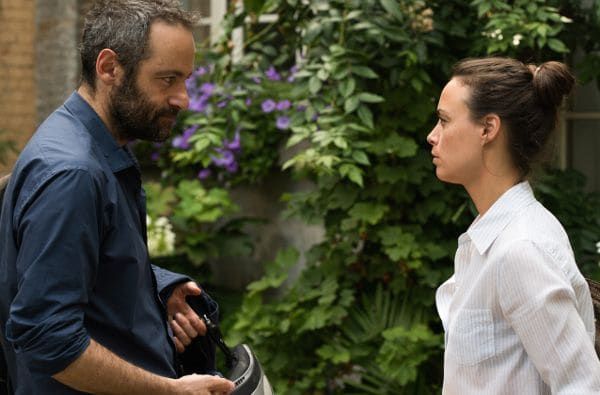Eye For Film >> Movies >> After Love (2016) Film Review
After Love
Reviewed by: Amber Wilkinson

"You're begging me to go
Then making me stay
Why do you hurt me so bad
It would help me to know
Do I stand in your way
Or am I the best thing you've had"
As Pat Benatar put it so eloquently, Love Is A Battlefield. As for the end of love, Joachim Lafosse's latest film suggests that is even worse, particularly in terms of collateral damage. There isn't an all-out war between long-term partners Marie (Bérénice Bejo) and Boris (Cédric Kahn), as a mum and dad of two kids they're trying to rub along as best they can under the same roof until they can wrangle the terms of their split. But if their emotional guns aren't blazing all the time, there's still plenty of skirmishing, the wall of tension between them palpable to us and to twins Jade and Margaux (real-life sisters Jade and Margaux Soentjens) who are, at the risk of over-quoting old pop songs, stuck in the middle with them.

Lafosse has become a dissector of the impact adult decisions have on children, exploring the issue in films as diverse as Private Property and White Knights, the theme recurring in different forms despite a changing array of writers - this time he's scripting alongside Mazarine Pingeot and Fanny Burdino. As with White Knights, children are again shown to be the unwitting victims of adults' best intentions. Not that the adults can see it. Marie is trying to stick to the rules - she has her days, Boris has his and food is split neatly - his increasing violations forcing her to adopt a bunker mentality. Boris is wilfully disruptive, trying to salvage the relationship in a way that only serves to sabotage it further and, if that won't come off, to cut himself the best fiscal deal he can.
The script takes an adult approach to emotions, even as it shows how childish a situation can become, such as one telling moment when a pair of trainers is 'lost' simply so that Boris can buy the replacements. The original French title translates as the "couple's economy" and the fiscal implications of what is happening are shown as yet another thing that hems Boris and Marie in, although the degree to which they are using this as an excuse remains debatable. The director barely leaves the family's apartment, so that the claustrophobia bites deep, although the film never feels stagey. Even when we venture onto the patio to join Marie in a rare moment of venting with her friends, Boris arrives, bringing with him the death grip of their relationship that squashes the air out of the space.
Lafosse doesn't need a crisis to make this drama but eventually gives us one anyway, an unnecessary injection of extremism that unexpectedly deflates the tension. The film is better with ambivalence than absolutes.
Reviewed on: 23 Nov 2017


















